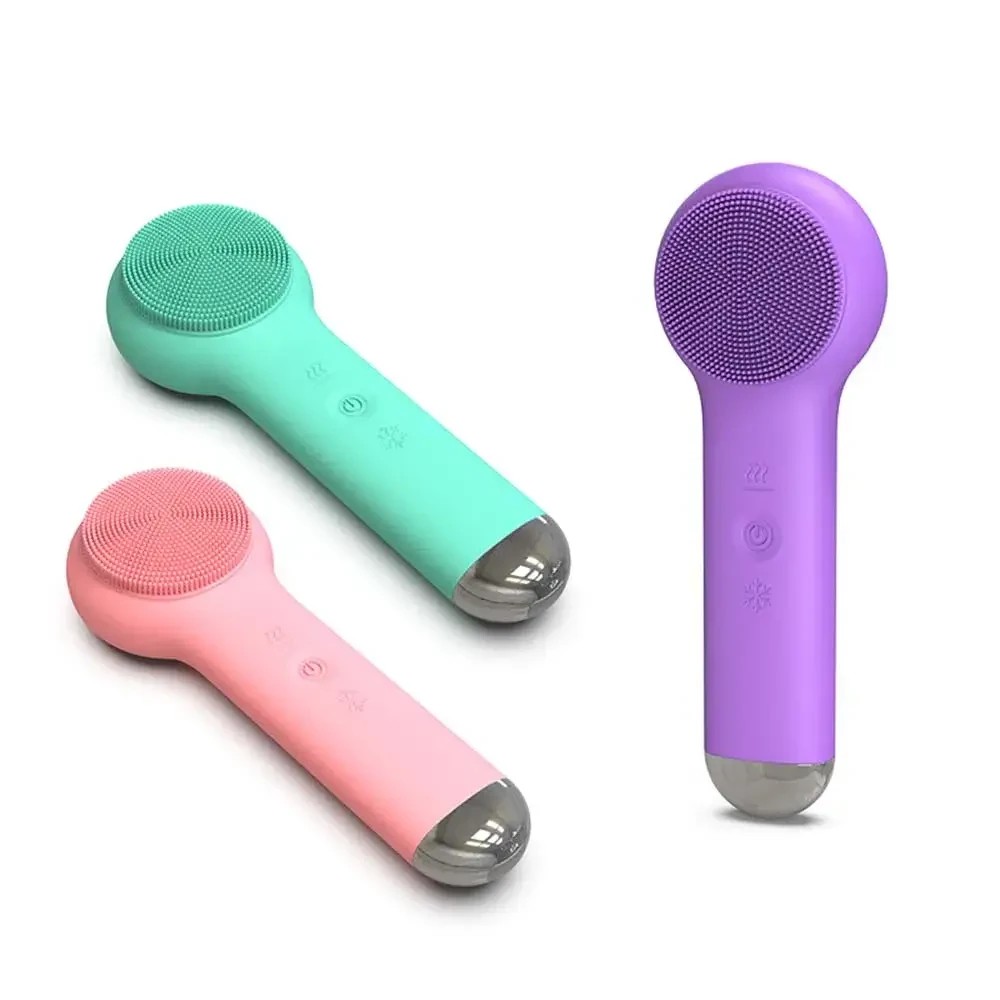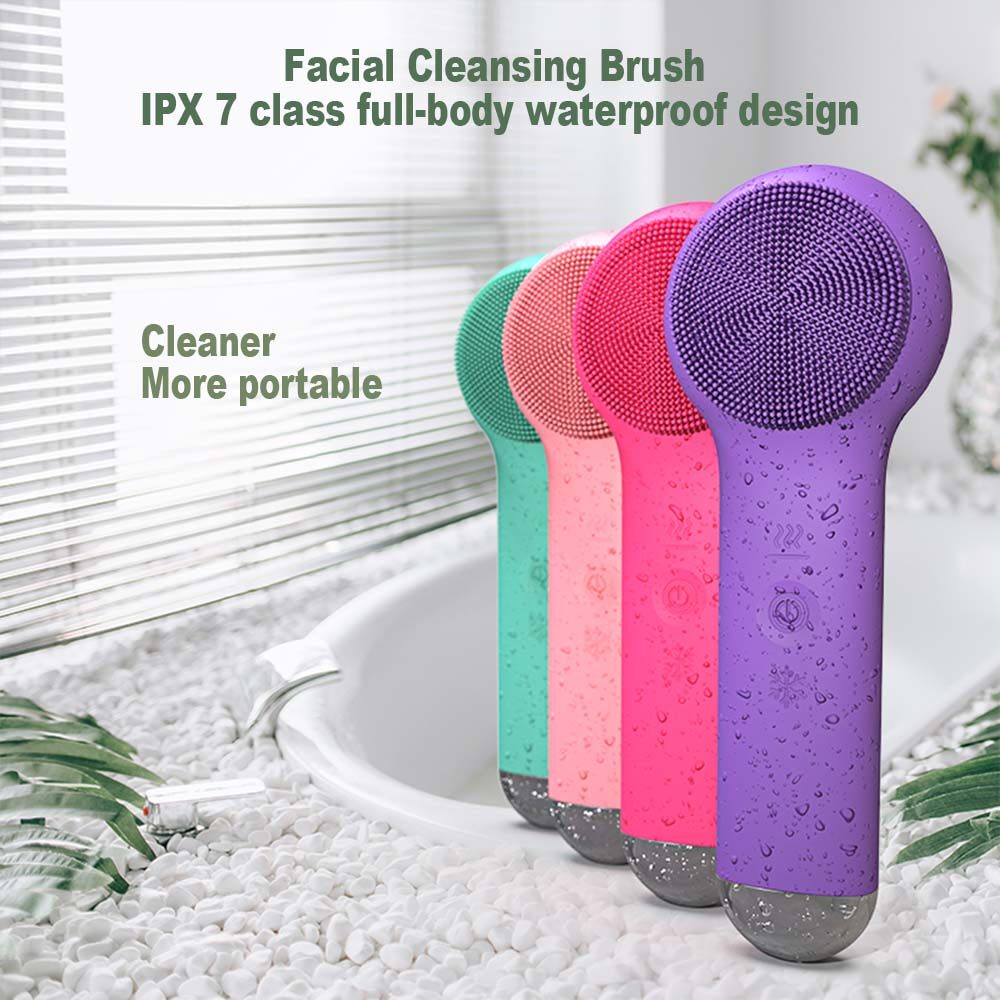Email cannot be empty
Password cannot be empty
Email format error
Email cannot be empty
Email already exists
6-20 characters(letters plus numbers only)
The password is inconsistent
Email format error
Email cannot be empty
Email does not exist
6-20 characters(letters plus numbers only)
The password is inconsistent

If you’ve ever struggled with blackheads, you’ve likely wondered, Can facial cleansing brushes actually help reduce or eliminate them? With an increasing number of skincare tools flooding the market, it's easy to feel overwhelmed by the choices. Among the most popular gadgets are facial cleansing brushes, which claim to deeply cleanse the skin, improve texture, and even tackle issues like blackheads. But do they really work?
In this blog, we’ll explore whether facial cleansing brushes are effective for treating blackheads, how they work, and what to look for when choosing the right one for your skin. Let’s break down the truth behind these brushes and their impact on your skincare routine.
Before diving into whether facial cleansing brushes can help with blackheads, it’s important to understand what blackheads are and why they appear.
Blackheads are a type of non-inflammatory acne that forms when hair follicles (pores) become clogged with excess oil, dead skin cells, and bacteria. Unlike whiteheads, which remain closed beneath the skin, blackheads are open at the surface, allowing the contents to oxidize and turn black. Factors that contribute to the development of blackheads include:
While blackheads aren’t painful like pimples, they can cause frustration due to their appearance, particularly on the nose, chin, and forehead (commonly known as the T-zone).
Facial cleansing brushes have become a go-to tool for many people looking to elevate their skincare routine. These devices are designed to offer a deeper cleanse than traditional hand-washing methods by utilizing sonic or rotational technology to agitate the skin and remove dirt, oil, and impurities.
There are different types of facial cleansing brushes, but most fall into two categories:
Manual Brushes: These brushes require the user to physically move the brush across the skin. They have soft bristles that gently scrub the face.
Electric Brushes: These brushes vibrate or rotate to assist in the cleansing process, offering a deeper and more consistent clean. They often come with multiple speeds and various brush heads for different skin types.

Now, let’s get to the burning question: Do facial cleansing brushes actually help with blackheads? The answer is generally yes, but with a few caveats. Here's how these devices might be beneficial for those struggling with blackheads:
One of the primary functions of facial cleansing brushes is to exfoliate the skin. Exfoliation helps remove dead skin cells that can clog pores and lead to the formation of blackheads. Since blackheads are often caused by the buildup of these dead skin cells, regular exfoliation can help keep pores clear.
Electric cleansing brushes tend to work more effectively than manual ones due to the vibrating or rotating motion, which helps dislodge debris from pores. The mechanical movement of the bristles can help exfoliate the skin more thoroughly and stimulate blood circulation, leading to a cleaner complexion. Over time, consistent exfoliation may reduce the likelihood of new blackheads forming.
Facial brushes are designed to remove excess oil, dirt, and other impurities from the skin’s surface. Since blackheads form when the pores get clogged with oil, the act of cleansing and removing this excess oil can be helpful in preventing new blackheads from appearing.
Many electric facial cleansing brushes are particularly useful for this purpose because they provide a more intense clean compared to regular hand washing. By effectively removing oil, dirt, and makeup that could otherwise clog pores, cleansing brushes may help to reduce the frequency and severity of blackhead breakouts.
When your skin is properly cleansed, your skincare products—such as toners, serums, and moisturizers—are more easily absorbed. This improved absorption can help make active ingredients like salicylic acid, benzoyl peroxide, or retinoids more effective at treating blackheads.
By regularly using a facial cleansing brush, you’re not only cleaning your pores but also preparing your skin for the next step in your skincare routine, which could include blackhead-fighting treatments.
While facial cleansing brushes can help with blackheads, there are a few things to keep in mind to ensure you're using them effectively and safely.
Not all cleansing brushes are created equal, and it's crucial to select one suited to your skin type. For example:
Exfoliating is beneficial, but overdoing it can lead to skin irritation or an increase in oil production. Using a facial cleansing brush too frequently, especially with harsh bristles, can strip the skin of its natural oils, leading to dryness, inflammation, and even more blackheads. It’s important to use the brush as directed, usually 2-3 times per week, and to pair it with a good moisturizer to maintain healthy skin.
Just like you clean your face, you need to clean your cleansing brush to ensure it works effectively. Bacteria and product buildup on the brush head can reintroduce dirt and oil into your pores, which may actually worsen blackheads if not cleaned properly. Be sure to clean your brush head after every use, and replace it every few months as recommended by the manufacturer.
Facial cleansing brushes work best when used as part of a comprehensive skincare routine. While they can help with blackhead prevention, they are most effective when combined with other treatments such as:
While facial cleansing brushes can certainly help reduce blackheads, their benefits extend beyond this. Here are some other reasons to incorporate a facial cleansing brush into your skincare routine:
Regular use of a facial cleansing brush can help smooth rough skin, remove dead skin cells, and promote a radiant complexion. Over time, you may notice your skin looking more even and polished.
By promoting cell turnover and reducing clogged pores, a facial cleansing brush can help improve skin tone and clarity. It also helps even out hyperpigmentation or discoloration caused by acne or other skin conditions.
Compared to abrasive scrubs, facial cleansing brushes are generally much gentler, offering a more gentle exfoliation without harsh scrubbing that could damage your skin’s barrier.
In summary, facial cleansing brushes can indeed help with blackheads, but their effectiveness depends on how you use them. By deeply cleansing and exfoliating the skin, removing excess oil, and improving the absorption of skincare products, they can help prevent and reduce the appearance of blackheads over time.
However, it’s important to use them as part of a balanced skincare routine and avoid over-exfoliating. If you choose the right brush for your skin type and combine it with other blackhead treatments, you’ll be well on your way to clearer, healthier skin.
Remember, a facial cleansing brush is just one tool in your skincare arsenal. Consistency, a good skincare routine, and the right products are essential for maintaining clear skin and preventing blackheads in the long term.